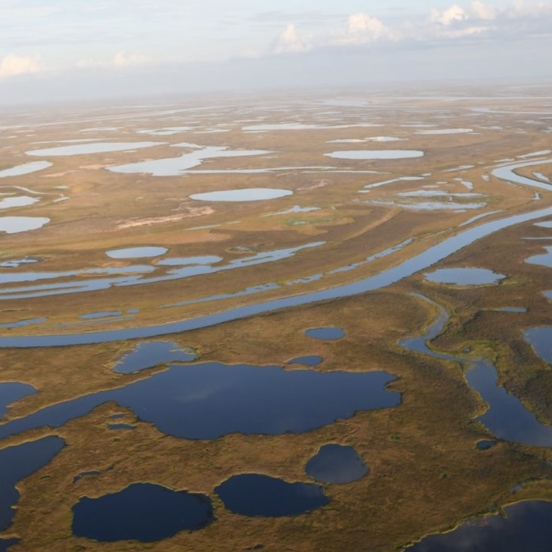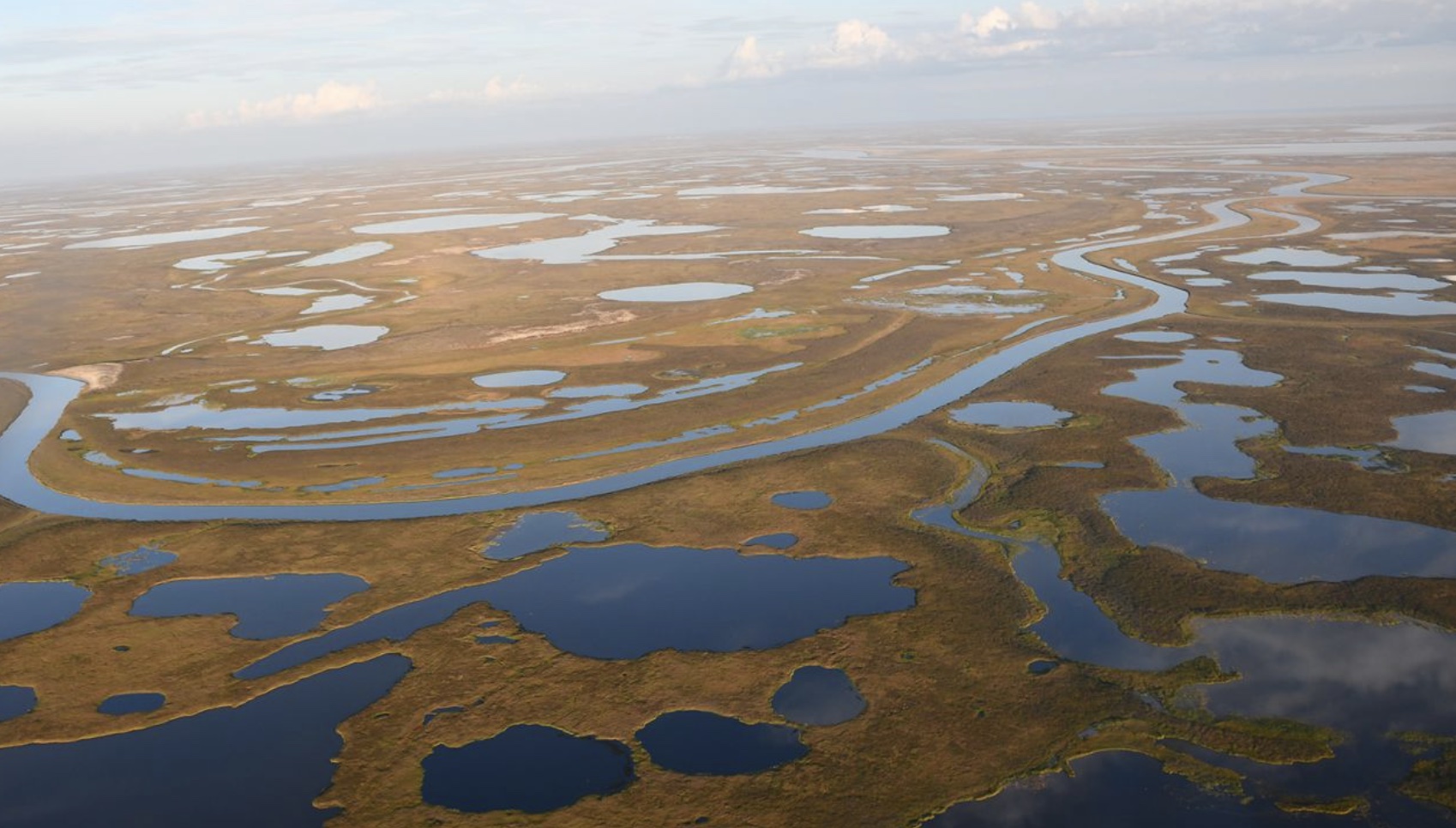Climate, Health and Equity Brief
Doomsday scenarios, zombie viruses and charting a path forward
December 5, 2022

The Climate, Health & Equity Brief is GMMB’s take on the week’s news on the current impacts of climate change. If you haven’t subscribed yet, you can do so by clicking here.
Hot Topic: Limited options. A new Washington Post analysis of climate models considered by the U.N. Intergovernmental Panel on Climate Change provides a deep dive into the options we still have to keep climate change in check. The Post team examined 1,200 possible scenarios for our climate future and found 11 paths—all of which they rated as “challenging”—that would keep temperature increases at or near 1.5°C (2.7°F) by century’s end, avoiding the worst climate impacts.
Each of these scenarios requires significant advances, including the removal and storage of seven billion tons of carbon dioxide per year from the atmosphere by 2050. Our current capacity is just 43 million tons per year—less than 1% of what is required—despite capacity doubling in the last decade. Not surprisingly, most of these scenarios also require dramatic increases in both renewables and energy efficiency as well as a total or near-total phase-out of fossil fuels.
Unfortunately, the impacts today at an increase of just 1.1°C continue to wreak havoc. In the U.S., scientists have raised alarm about a potential “doomsday scenario” on the Colorado River, which they say could happen as soon as July and would impact 1 in 10 Americans. In South Asia, climate change is fueling a global increase in human migration and forced labor. And in Siberia, scientists have revived nearly two dozen viruses from the permafrost—13 of which remained infectious despite spending tens of thousands of years in the frozen ground—raising concerns for human health as the permafrost continues to melt.
At COP27, global leaders reaffirmed the 1.5°C goal and recognized the need to compensate developing countries for climate loss and damage for the first time—a major win—but failed to achieve agreement on the need to phase out fossil fuels, a loss that most experts agree must be rectified—and soon—to chart a safe path forward for the planet.
—Matt and Traci, GMMB
Programming note: The Brief team is in a retreat next week and will be back in your inbox on December 17.
Human Health
After finding and analyzing ancient pathogens that had been frozen in Siberia for tens of thousands of years, scientists say the danger of “zombie viruses” being released from melting permafrost poses a serious risk, particularly if humans migrate north as the planet warms. (Bloomberg)
A comprehensive study of the 2021 heatwave that killed 1,400 people in Oregon, Washington and Canada reveals how rising temperatures are contorting the jet stream and making heatwaves in the normally temperate Pacific Northwest more likely. (Axios)
Planetary Health
The Washington Post examined over 1200 scenarios for our climate future and found that the world has run out of easy options to limit warming to 1.5°C (2.7°F), but governments and corporations can still take steps that are more scientifically and politically challenging to ensure a safer future. (The Washington Post)
Officials fear the drought-stricken Colorado River, which provides water to 40 million people, could experience a “complete doomsday scenario” as early as next July as historically low water levels threaten to collapse water access, power generation and natural ecosystems along the 1,450-mile waterway. (The Washington Post)
Equity
A disturbing new report from the International Justice Mission (IJM) revealed that the number of people in modern slavery has risen by approximately 10 million since 2016, with data showing that 78 percent of rescued forced laborers in South Asia migrated from regions where impacts from climate change had placed their livelihoods at risk. (The Hill)
The Biden Administration has committed $75 million to move three Native tribe communities located in Alaska and Washington state to higher ground away from currently under threat from climate change. (The New York Times)
Politics & Economy
Germany became the latest country to abandon the 1998 Energy Charter Treaty—which has been used by fossil fuel companies to oppose climate change efforts—following similar announcements from Italy, France, Spain and other European countries. (AP News)
A new initiative by the Ports for People campaign gave report cards to 15 of the world’s top 50 ports on their efforts to decarbonize cargo shipping, which will play a pivotal role in global efforts to curb the maritime sector’s carbon footprint. (Canary Media)
Action
Germany became the latest country to abandon the 1998 Energy Charter Treaty—which has been used by fossil fuel companies to oppose climate change efforts—following similar announcements from Italy, France, Spain and other European countries. (AP News)
A new initiative by the Ports for People campaign gave report cards to 15 of the world’s top 50 ports on their efforts to decarbonize cargo shipping, which will play a pivotal role in global efforts to curb the maritime sector’s carbon footprint. (Canary Media)
Kicker
The runoff for Georgia’s U.S. Senate seat is this Tuesday, December 6! Consider volunteering with the Environmental Voter Project to get out the vote for Sen. Raphael Warnock (D), whose opponent, Herschel Walker (R), opposes climate action because we already “have enough trees.”
There’s one issue that will define the contours of this century more dramatically than any other, and that is the urgent threat of a changing climate.”
– Barack Obama
The GMMB Climate, Health & Equity Brief would not be possible without the contributions of the larger GMMB California team— Thomas, Baer, Aaron Benavides, Stefana Hendronetto, Sharde Olabanji and Quincy Tichenor, Feedback on the Brief is welcome and encouraged and should be sent to CHandEBrief@gmmb.com.






